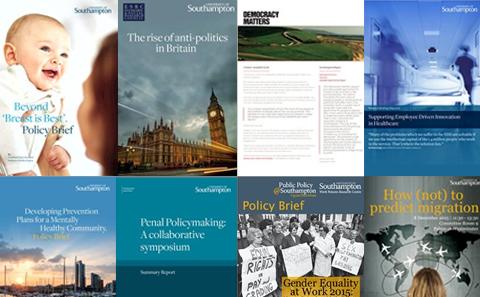
Perserving a Diverse Banking System Policy Brief
Find out more about the Perserving a Diverse Banking System Policy Brief

The 2008 global financial crisis (GFC) has highlighted the fragility of the current banking system and has shifted the debate among policy makers towards the role of traditional and local banking for economic growth, and the access to credit of SMEs. Banking-related discussions with a focus on SMEs are particularly timely as SMEs have experienced difficulties in recovering from the GFC, and are strongly dependent on bank financing. Moreover, in response to the recent Banking Recovery and Resolution Directive, some governments (for example in Italy and Netherlands) have advocated the aggregation of cooperative banks in large groups. Changes in the architecture of the banking system raise concerns not only for local development and SMEs’ access to credit but also for the efficiency of a diversified banking ecosystem where each type of bank contributes to a healthy level of liquidity.
The financial crisis has in fact highlighted the fragility of the current banking system: as the crisis hit markets, interbank markets all but dried up in many cases, and what once appeared to be a healthy banking ecosystem structure crumbled. The result was a serious loss of financial stability, as banks rely strongly on the interbank market for liquidity. In this context, the structure of the large banking systems in Europe (especially Germany, Italy, the Netherlands, UK, etc) presents an interesting banking architecture where commercial (universal) banks coexist with cooperatives and savings banks. Each type of bank is known to have its own attributes when it comes to maintaining a healthy level of liquidity.
Whether this diversity indeed makes the system as a whole more robust is an empirical issue. In particular, the following issues were addressed at the “Banking on industry: does banking architecture matter for stability, industrial structure, and development?” workshop that took place on the 29th September 2018 at Maastricht University. To find out more on the conclusion of the workshop above, please refer to the policy brief link below.
Dr Marta Degl'Innocenti Lecturer in Finance within Southampton Business School at the University of Southampton, her research interests include modelling efficiency and productivity of banks and other financial institutions and diversification strategies of banks.
Professor Jaap Bos He is currently Professor of Finance at Maastricht University. His research interests include the role of productivity differences, spillovers and innovation in explaining economic growth, and the analysis of micro-developments in efficiency and competition
Professor Angelo Zago He is currently Associate Professor of Economics at University of Verona. His research interests include modelling the determinants of industrial productivity and economic growth, the analysis of micro-developments in efficiency and productivity.

Find out more about the Perserving a Diverse Banking System Policy Brief

Find out more about research projects Public Policy|Southampton are currently working with

Read policy briefs from recent research projects